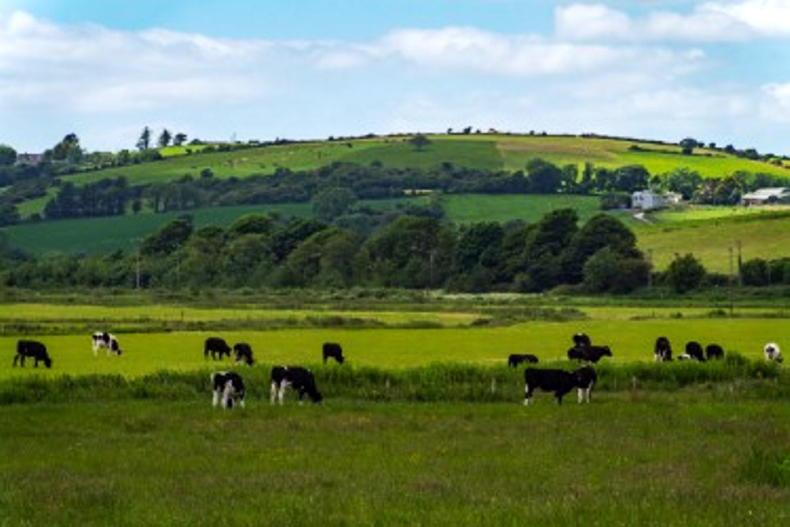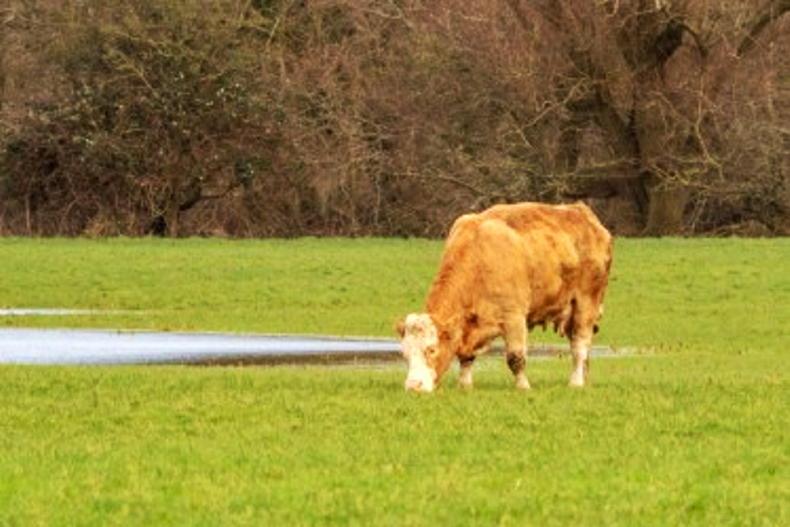Higher rainfall at the backend of last year and into the early parts of this year, coupled with cooler weather during the summer months, have added additional workload and costs on many farms and, as a result, cashflow support may be required in some instances.
Recognising these difficulties, AIB is committed to supporting farmers who may need assistance.
The weather has had several impacts across the year on all production systems, including depleted fodder reserves, delayed turnout to grass, subsequent poor growth rates and delays in planting crops.
These challenges have increased costs and reduced cash reserves on farms, making it more important to ensure there is sufficient cashflow to support the day-to-day running of farms.
AIB is aware of the challenges facing some farms and is encouraging farmers who need support to get in touch to discuss the options available to them.
Managing farm cashflow
Identifying a potential cashflow deficit, determining the level of support needed and engaging early with your bank are three steps required in managing farm cashflow.
1. Identify a cashflow deficit: the first step is to assess whether a cashflow deficit is likely to occur. This involves a review of the farm’s financial status, comparing with previous years and taking into account any additional expenses that have incurred or may incur and any potential change in income.2. Identify the level of support required: if a potential deficit is identified, the next step is quantifying the level of support needed. This includes calculating the additional working capital required to sustain farm operations until conditions improve.3. Engage early with your bank: early engagement with your bank can help you get in front of the cashflow deficit and allow you to take the necessary steps to ensure it does not affect your farm. AIB offers a range of options to support farmers and initiating this conversation early allows for a tailored approach to each farm’s unique situation.
AIB's support options for farmers
AIB provides a variety of support options designed to help farmers manage their cashflow during this challenging period. The options available may include:
Low-cost Strategic Banking Corporation of Ireland (SBCI) facilities: AIB offers access to low-cost SBCI Ukraine Credit Guarantee Scheme funding, which includes unsecured funding for working capital.Short-term increases to working capital facilities: AIB can facilitate short-term increases to existing working capital facilities, providing farmers with the additional funds to manage increased operational costs.Short-term loan facilities: AIB provides short-term loan facilities that offer access to funds to cover expenses until normal operations can resume.Term loan for recent capital expenditure: farmers can place recent capital expenditures on a term loan, freeing up cash flow that was previously allocated to these expenses. This option helps to maintain liquidity and ensures that the farm can continue to operate smoothly.
Role of AIB’s agri team
AIB’s dedicated team is on hand to assist farmers who may need support. The team includes relationship managers and agri advisers who are experienced in working with farmers and understanding the unique challenges they face. Farmers can contact the team through various channels, including in-branch visits or over the phone.
AIB head of agriculture, food and fishing Donal Whelton emphasises the importance of early engagement, saying: “We recognise that the weather has played its part in making 2024 a more difficult year for farmers.
"Grass growth is back, farmers are feeding additional meal and supplements and fodder reserves from last year are very much depleted.
"As a result, costs have increased on farm and some farmers may need additional cashflow support to get them through this period.
"We would urge all farmers to assess their working capital needs and reach out to the bank if support is required to explore the most suitable options.”
AIB is committed to standing by the farming community, offering tailored financial solutions to support our customers. For more information and to explore the support options available, farmers are encouraged to contact their local AIB branch or visit AIB's agriculture support page.
Lending criteria, terms and conditions apply. Credit facilities are subject to repayment capacity and financial status and are not available to persons under 18 years of age. Security may be required. Allied Irish Banks, p.l.c. is regulated by the Central Bank of Ireland.

Higher rainfall at the backend of last year and into the early parts of this year, coupled with cooler weather during the summer months, have added additional workload and costs on many farms and, as a result, cashflow support may be required in some instances.
Recognising these difficulties, AIB is committed to supporting farmers who may need assistance.
The weather has had several impacts across the year on all production systems, including depleted fodder reserves, delayed turnout to grass, subsequent poor growth rates and delays in planting crops.
These challenges have increased costs and reduced cash reserves on farms, making it more important to ensure there is sufficient cashflow to support the day-to-day running of farms.
AIB is aware of the challenges facing some farms and is encouraging farmers who need support to get in touch to discuss the options available to them.
Managing farm cashflow
Identifying a potential cashflow deficit, determining the level of support needed and engaging early with your bank are three steps required in managing farm cashflow.
1. Identify a cashflow deficit: the first step is to assess whether a cashflow deficit is likely to occur. This involves a review of the farm’s financial status, comparing with previous years and taking into account any additional expenses that have incurred or may incur and any potential change in income.2. Identify the level of support required: if a potential deficit is identified, the next step is quantifying the level of support needed. This includes calculating the additional working capital required to sustain farm operations until conditions improve.3. Engage early with your bank: early engagement with your bank can help you get in front of the cashflow deficit and allow you to take the necessary steps to ensure it does not affect your farm. AIB offers a range of options to support farmers and initiating this conversation early allows for a tailored approach to each farm’s unique situation.
AIB's support options for farmers
AIB provides a variety of support options designed to help farmers manage their cashflow during this challenging period. The options available may include:
Low-cost Strategic Banking Corporation of Ireland (SBCI) facilities: AIB offers access to low-cost SBCI Ukraine Credit Guarantee Scheme funding, which includes unsecured funding for working capital.Short-term increases to working capital facilities: AIB can facilitate short-term increases to existing working capital facilities, providing farmers with the additional funds to manage increased operational costs.Short-term loan facilities: AIB provides short-term loan facilities that offer access to funds to cover expenses until normal operations can resume.Term loan for recent capital expenditure: farmers can place recent capital expenditures on a term loan, freeing up cash flow that was previously allocated to these expenses. This option helps to maintain liquidity and ensures that the farm can continue to operate smoothly.
Role of AIB’s agri team
AIB’s dedicated team is on hand to assist farmers who may need support. The team includes relationship managers and agri advisers who are experienced in working with farmers and understanding the unique challenges they face. Farmers can contact the team through various channels, including in-branch visits or over the phone.
AIB head of agriculture, food and fishing Donal Whelton emphasises the importance of early engagement, saying: “We recognise that the weather has played its part in making 2024 a more difficult year for farmers.
"Grass growth is back, farmers are feeding additional meal and supplements and fodder reserves from last year are very much depleted.
"As a result, costs have increased on farm and some farmers may need additional cashflow support to get them through this period.
"We would urge all farmers to assess their working capital needs and reach out to the bank if support is required to explore the most suitable options.”
AIB is committed to standing by the farming community, offering tailored financial solutions to support our customers. For more information and to explore the support options available, farmers are encouraged to contact their local AIB branch or visit AIB's agriculture support page.
Lending criteria, terms and conditions apply. Credit facilities are subject to repayment capacity and financial status and are not available to persons under 18 years of age. Security may be required. Allied Irish Banks, p.l.c. is regulated by the Central Bank of Ireland.










 This is a subscriber-only article
This is a subscriber-only article





